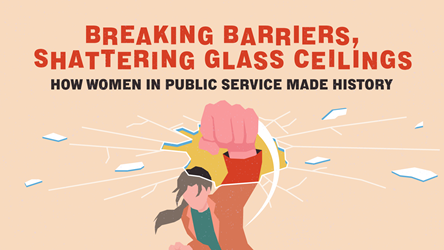Going The Last Mile For Pioneers: Communicating The Pioneer Generation Package Differently
How the Pioneer Generation Office and Ministry of Finance made the Pioneer Generation Package easy for Pioneers to understand — with the help of analytics in an integrated communications campaign.

Many citizens often get daunted trying to understand government policies. So what more a wide-ranging benefits package designed for Singaporeans aged 65 and above (the “Pioneer Generation”), many of whom do not have much formal education and are unfamiliar with the Internet?
Enter the Pioneer Generation Office (PGO), set up in August 2014 to ensure that the Pioneers, and their family members, understand the Pioneer Generation Package and utilise its benefits.
With so many Pioneers to reach out to — about 450,000 of them — the PGO isn’t doing this alone. Several other government agencies are working in tandem, including the Ministry of Finance (MOF), Ministry of Communications and Information (MCI) and the People’s Association.
Together, they adopted an integrated, data-driven approach to reach out to the Pioneers, in which they tested and measured the effectiveness of different communication channels used to publicise the Package.
“Using data, we designed and customised messages, complementing standard government letters and mass media advertising, to address local concerns and sentiments on the ground,” said Ms Geraldine Pang, Senior Associate (Data Analytics), Transformation Office at the MOF.
The communications campaign began with a public advertising drive in June 2014. The MOF and the MCI commissioned regular surveys to assess whether the communication and engagement efforts were effective, and identify areas where the messages were not getting through.
The surveys showed that the older Pioneers (above 75 years old) were less likely to be aware of the Package through mass media such as newspaper and television ads. Certain demographic groups knew of the Package benefits, but still felt unsure about healthcare affordability.
Having this information helped the PGO to prioritise their outreach for these groups and tweak their messages to address the Pioneers’ concerns.
While conducting their outreach, the PGO also collected feedback and data from the Pioneers, such as their healthcare needs. The feedback and ground-sensing from the PGO’s effort to engage with the Pioneers at their homes likewise informed the mass communications via traditional and social media.
Overall, it has been a continuous cycle of exchange among the agencies to inform both the mass and personalised communications on the ground.
Going the distance
The Pioneers’ limited mobility, varying levels of literacy and language ability, as well as a lower use of the Internet for information added to the need for a different engagement approach.
The “last mile” thus involved volunteers, or Pioneer Generation Ambassaors, going to Pioneers’ homes to explain the Package’s benefits and answer any questions that may arise. This kicked off in October 2014.
To customise the volunteers’ training, personalise the key messages to be conveyed, and better match Ambassadors to the Pioneers based on the language or dialect they speak, the PGO required demographic data such as where the Pioneers lived as well as their age, gender and ethnicity.

The MOF team analysed the critical information — including location geo-mapping to identify areas where more Pioneers live — and shared this with the PGO, which then enabled the PGO to come up with the appropriate outreach methods.
Ms Serene Peh, the PGO’s Deputy Director, Data Analytics, Planning and Operation, gave an example: “If the Pioneer is a Malay man who lives on his own, how many Ambassadors should then interview him, and should they be male or female? Taking into account cultural norms increases the receptivity of Pioneers and their families to the house visits.”
Having a better understanding of the Pioneers’ profiles also helped the Ambassadors prepare information about other relevant schemes, such as the Housing & Development Board’s Enhancement for Active Seniors programme that subsidises home improvements for elderly residents’ safety and mobility.
The aim is to assure the Pioneers and their family members that their needs are being looked after holistically, Ms Peh said.
Since then, the Ambassadors have successfully visited more than 60% of the Pioneers. The PGO aims to engage “at least 75%” of Pioneers by the third quarter of 2016, added Ms Peh.
As Pioneers may be out at work or staying at another residence during weekdays, it is hard work for the Ambassadors, who often have to visit each home several times to successfully engage their assigned Pioneer.
Additional roles
Another advantage of personalised outreach is that the Ambassadors also get important nuggets of feedback from the Pioneers.
Ms Peh explained: “In their conversations with the Pioneers, the Ambassadors discovered that several key medications for common geriatric conditions, such as high cholesterol, diabetes and high blood pressure, were not subsidised.”
Such findings were then passed on the Ministry of Health to inform their policy-making and, where needed, to refine the implementation of existing policies.
And since November 2015, when MediShield Life was introduced, the Ambassadors have also assumed the responsibility of explaining to the Pioneers and their caregivers how that works.
So far the public agencies are satisfied with how the Pioneers now know that healthcare in Singapore has been made more affordable for them.
Ms Pang said: “The data shows that at the beginning of the campaign, only about 70% of Pioneers knew about the Package benefits as compared to more than 90% today. We also found that the Ambassadors were effective in assuring Pioneers of healthcare affordability, especially for older Pioneers who are more likely to be illiterate or living alone.”
The MOF will next use data to identify vulnerable seniors who will benefit from various senior-related policies. In addition, the team is also sharing their methodology with other campaign teams such as the SkillsFuture Communications Workgroup.
- POSTED ON
May 11, 2016
- TEXT BY
Carolyn Oei









